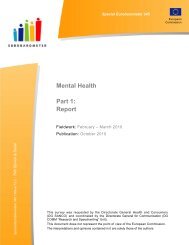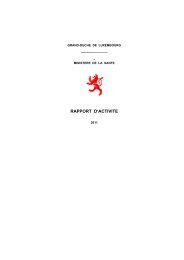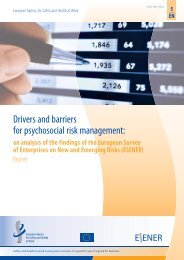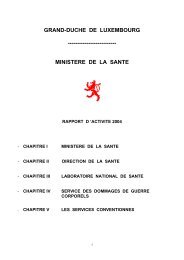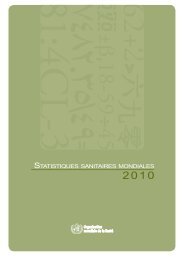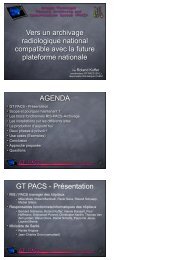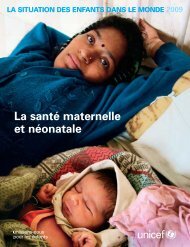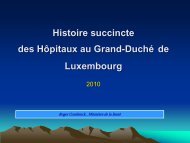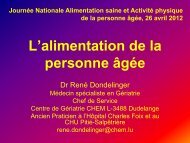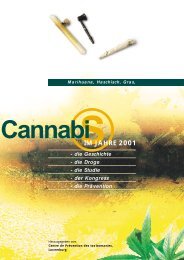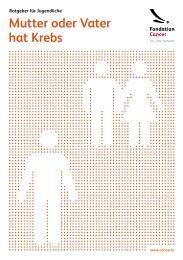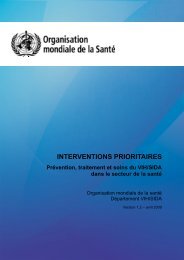healthy and active ageing - EuroHealthNet's Healthy Ageing Website
healthy and active ageing - EuroHealthNet's Healthy Ageing Website
healthy and active ageing - EuroHealthNet's Healthy Ageing Website
You also want an ePaper? Increase the reach of your titles
YUMPU automatically turns print PDFs into web optimized ePapers that Google loves.
Box 6<br />
Key resources<br />
WHO Policy Framework on Active <strong>Ageing</strong> (2002)<br />
In order to achieve the ultimate goal of <strong>healthy</strong> <strong>ageing</strong> <strong>and</strong> <strong>active</strong> <strong>ageing</strong>, the WHO has developed a policy<br />
framework which focuses on areas such as preventing <strong>and</strong> reducing the burden of disabilities, chronic<br />
disease <strong>and</strong> premature mortality; reducing the risk factors associated with non-communicable diseases<br />
<strong>and</strong> functional decline as individuals age, while increasing factors that protect health; enacting policies<br />
<strong>and</strong> strategies that provide a continuum of care for people with chronic illness or disabilities; providing<br />
training <strong>and</strong> education to formal <strong>and</strong> informal carers; ensuring the protection, safety <strong>and</strong> dignity of <strong>ageing</strong><br />
individuals; <strong>and</strong> enabling people as they age to maintain their contribution to economic development, to<br />
activity in the formal <strong>and</strong> informal sectors, <strong>and</strong> to their communities <strong>and</strong> families.<br />
More information is available at:<br />
http://www.who.int/<strong>ageing</strong>/<strong>active</strong>_<strong>ageing</strong>/en/index.html<br />
EU’s Committee of the Regions’ guide on<br />
“How to Promote <strong>Ageing</strong> Well in Europe”<br />
This brochure, which was developed by AGE with support from EU’s Committee<br />
of the Regions in 2009, offers practical tools <strong>and</strong> instruments for local <strong>and</strong> regional<br />
actors to promote <strong>healthy</strong> <strong>ageing</strong>. The brochure addresses a diverse set of<br />
issues related to <strong>ageing</strong>, ranging from poverty <strong>and</strong> social exclusion, employment<br />
<strong>and</strong> lifelong learning, health services, urban accessibility <strong>and</strong> adaption, housing,<br />
social participation <strong>and</strong> volunteering as well as intergenerational solidarity <strong>and</strong><br />
exchange. The topics are complemented with best practice examples from<br />
the different areas to inspire cities <strong>and</strong> regions to address their own <strong>ageing</strong><br />
challenges.<br />
The full report is available at:<br />
http://ec.europa.eu/health/mental_health/docs/age-cor.pdf<br />
In follow up to this, AGE <strong>and</strong> the Committee of the Regions have issued a new publication<br />
“How to promote <strong>active</strong> <strong>ageing</strong>: EU support for local <strong>and</strong> regional actors” (2011) presenting EU<br />
funding possibilities for regional <strong>and</strong> local initiatives to promote <strong>active</strong> <strong>ageing</strong> <strong>and</strong> solidarity between<br />
generations. The brochure aims to make a particular contribution to the European Year for Active <strong>Ageing</strong><br />
<strong>and</strong> Solidarity between Generations 2012. The brochure presents numerous examples of projects which<br />
have received EU funding.<br />
The full report is available at:<br />
http://ec.europa.eu/social/BlobServlet?docId=7005&langId=en<br />
13



